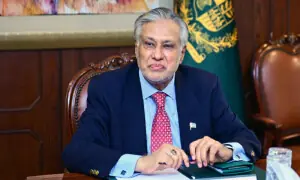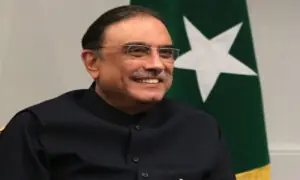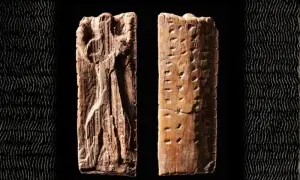BBC’s Sharp quits after breaching rules over Boris Johnson loan
3 min readBBC Chairman Richard Sharp resigned on Friday after an independent report found he breached rules by not disclosing a potential conflict of interest in his role in securing a $1 million loan for the then-prime minister, Boris Johnson.
His exit amid a cronyism row comes at a time of heightened political scrutiny of the publicly-funded British broadcaster’s impartiality. A row with high profile presenter Gary Lineker over tweets criticising government policy dominated national headlines last month.
Sharp, a former Goldman Sachs banker and donor to the governing Conservative Party, was made chairman in 2021.
But he has been under pressure since February when a committee of lawmakers said he had made “significant errors of judgement” in failing to declare his involvement in the loan.
Sharp agreed to stay on until the end of June while the government searches for a replacement.
While the government appoints the chairman of the BBC, the broadcaster’s independence from government is what helps make it a central presence in British cultural life. It is funded by a licence fee paid by TV-watching households.
The opposition Labour Party’s culture spokeswoman Lucy Powell said the Conservative government’s “sleaze and cronyism” had damaged the BBC‘s reputation and “a truly independent and robust process” was needed to appoint Sharp’s successor.
Asked by reporters whether that replacement should be a non-political appointment, Prime Minister Rishi Sunak, who worked with Sharp at Goldman Sachs, said: “There’s an established appointments process for all these things and it will be right that we turn to that when the time is right.”
Questions about the BBC’s neutrality are just one of the challenges it faces, along with trying to stay relevant to younger audiences who no longer watch live television, while also fighting threats to its funding from some lawmakers.
Public appointments investigation
The investigation, initiated by the public appointments watchdog, examined the way in which Sharp was selected by the government to chair the corporation.
Specifically, it looked at whether Sharp fully disclosed details of his role in facilitating an 800,000 pound ($1 million) loan for Johnson before he was named chairman.
The report found that, while he had breached the government’s code for public appointments, that breach did not necessarily invalidate his appointment. Sharp said he believed the breach had been “inadvertent and not material”.
But he also said staying until the end of his four-year term would be a distraction from the broadcaster’s “good work”.
“I have decided that it is right to prioritise the interests of the BBC,” Sharp said in a statement. “I have therefore, this morning, resigned as the BBC chair.”
The report mentions that Johnson’s Downing Street office recommended Sharp as “a strong candidate” for the role, which attracted 23 applications.
Sharp has maintained he was not involved in making the loan or in arranging a guarantee or any financing, and that he did no more than seek to introduce Canadian businessman Sam Blyth to a government official in late 2020.
Andrew Heppinstall, who carried out the inquiry, said he was “happy to record” that he had seen no evidence of Sharp having any role in Johnson’s private financial affairs aside from the attempted introduction.
For the latest news, follow us on Twitter @Aaj_Urdu. We are also on Facebook, Instagram and YouTube.


























Comments are closed on this story.